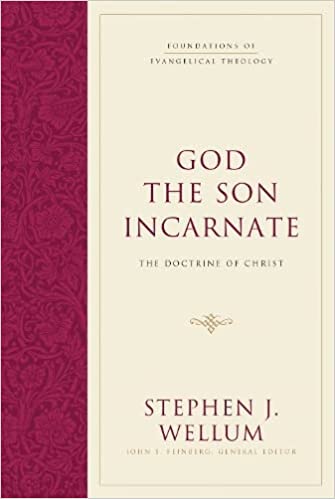A Brief Book Summary from Books At a Glance
by Benjamin J. Montoya, PhD
About the Author
Stephen J. Wellum (PhD, Trinity Evangelical Divinity School) is professor of Christian theology at the Southern Baptist Theological Seminary in Louisville, Kentucky, and editor of The Southern Baptist Journal of Theology. Stephen and his wife, Karen, have five adult children.
Introduction
Christology is the doctrine of the person and work of Christ. But how shall we understand it? How should we approach this study? How do others in Church History understand this doctrine? In this book, Steven J. Wellum presents an approach to Christology that insists on a return to a revelational epistemology as opposed to other modern approaches that focus elsewhere—on the reader’s understanding or on our reason’s attempts to construct a different kind of historical Jesus.
Table of Contents
Part One: Epistemological Warrant for Christology Today
Chapter 1 Contemporary Christology
Chapter 2 “Biblical” Epistemology for Christology
Part Two: Biblical Warrant for Christology Today
Chapter 3 The Authoritative Structure of the Biblical Storyline
Chapter 4 The Identity of Jesus from the Storyline of Scripture
Chapter 5 The Deity of Christ: God the Son from Eternity
Chapter 6 The Humanity of Christ: God the Son Incarnate
Part Three: Ecclesiological Warrant for Christology Today
Chapter 7 Ante-Nicene Christology: The Need for Orthodoxy
Chapter 8 Christology from Nicaea to Chalcedon
Chapter 9 Post-Chalcedonian Christology: The Establishment of Orthodoxy
Part Four: A Warranted Christology for Today
Chapter 10 Contemporary Challenges to Orthodox Christology: Kenotisim—A Middle Way?
Chapter 11 Evangelical Christology and Kenotic Influences
Chapter 12 Evangelicals and Kenotic Christologies: A “New” and “Better” Way?
Chapter 13 Christological Formulations: The Orthodox Identity of Jesus Christ
Chapter 14 Defending the Theology of God the Son Incarnate
Summary
Part One: Epistemological Warrant for Christology Today
Chapter 1: Contemporary Christology
Christology refers to the doctrine of Christ of both the person and work of Christ based on Scripture. Contemporary Christology, however, is based on something else given its larger goal. Its goal is to reject Scripture as the reliable and authoritative source of the knowledge of Jesus Christ. This has happened in the various quests for the historical Jesus and pluralism. Although these studies differed considerably from one another, their beginning points remain the same; they all assume that Scripture is unreliable, and then they must seek to uncover the real so-called “historical” Jesus as opposed to what Scripture presents.
Both approaches grew out of the Enlightenment and now from postmodernity. The Enlightenment sought to dethrone God with human reason. This larger shift in thinking has markedly altered the direction of studies in philosophy, science, religion, and hermeneutics. Post-modernism goes a step further along the same path as the Enlightenment, but it now discards the confidence in human reason that the Enlightenment still had. So, studies of anything, including important topics such as Christology, become reader-centered. Historically these approaches have become known as Christology “from below” compared to the “from above” approach mentioned in the next chapter. . . .
[To continue reading this summary, please see below....]The remainder of this article is premium content. Become a member to continue reading.
Already have an account? Sign In
